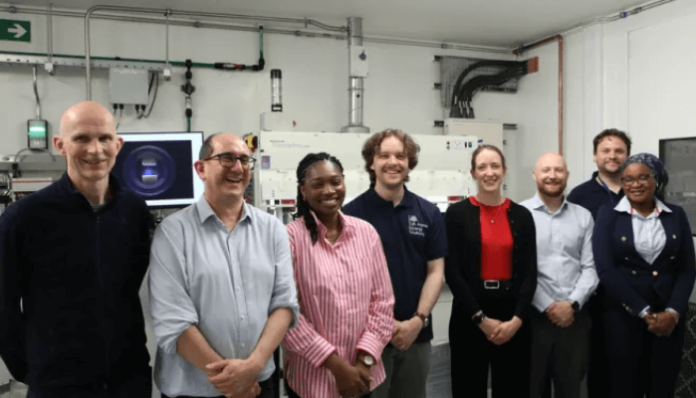Eseosa Ekanem and Fatimah Sanni, Senior Engineers at the United Kingdom Atomic Energy Authority, have pioneered the world’s first diamond battery, a revolutionary power source capable of lasting for thousands of years.
Based in a lab in Oxfordshire, the duo, along with their team, has fused the durability of diamonds with the efficiency of atomic energy to create this groundbreaking technology. Ekanem explained the battery-making process, highlighting that the diamonds used are synthetically grown in laboratories. The key innovation involves embedding carbon-14, a radioactive isotope, into the diamond. Due to diamond’s hardness, it absorbs radiation and safely contains it, ensuring the battery’s safety.
The diamond battery operates by utilizing the fast-moving electrons released by the decay of carbon-14, similar to how solar panels generate power from light. While conventional batteries may only last for a few months, carbon-14’s half-life means that even after 5,000 years, a diamond battery retains 50% of its power.
This technology is especially valuable for applications in inaccessible or hazardous environments, such as space, deep-sea exploration, and even inside the human body, powering devices like pacemakers, hearing aids, and ocular implants.
Sanni also emphasized the environmental benefits of the technology. “If the battery needs to be replaced or disposed of, it’s simply returned to the manufacturer, where we incinerate it and recycle the carbon-14 for reuse,” she said. “This means the process generates zero waste.”
Reports suggest that diamond batteries could offer an affordable and sustainable alternative to traditional alkaline and lithium batteries. Ekanem, who has been with the UK Atomic Energy Authority for over three years, has previously held roles in research and development and product engineering at Harrowgate Energy Services Limited and Chevron. She holds a bachelor’s degree from Covenant University, a Master’s in Advanced Process Engineering from Loughborough University, and a PhD in Chemical Engineering from Imperial College, London.
Sanni, a Tritium Engineer at the UK Energy Authority since 2017, has prior experience working at ExxonMobil. She studied at the University of Manchester before moving to the UK from Nigeria.
